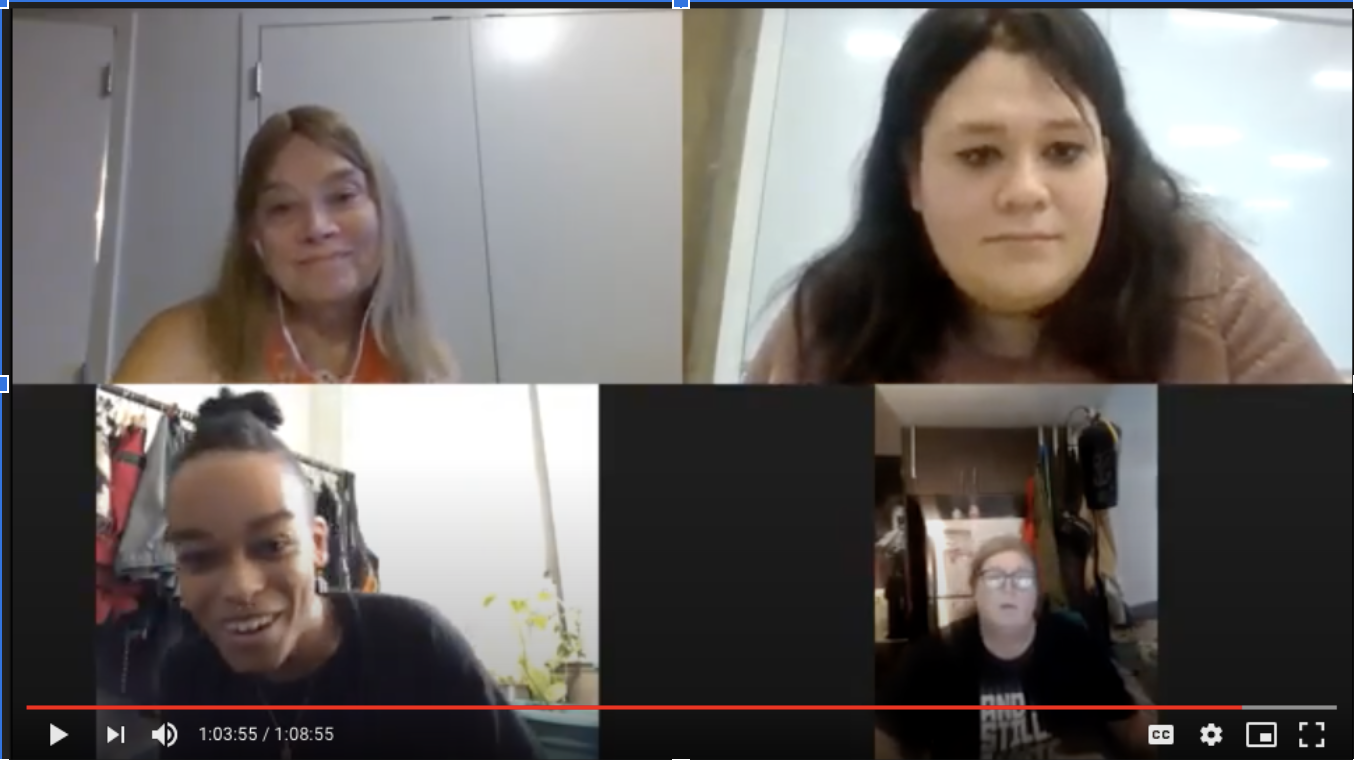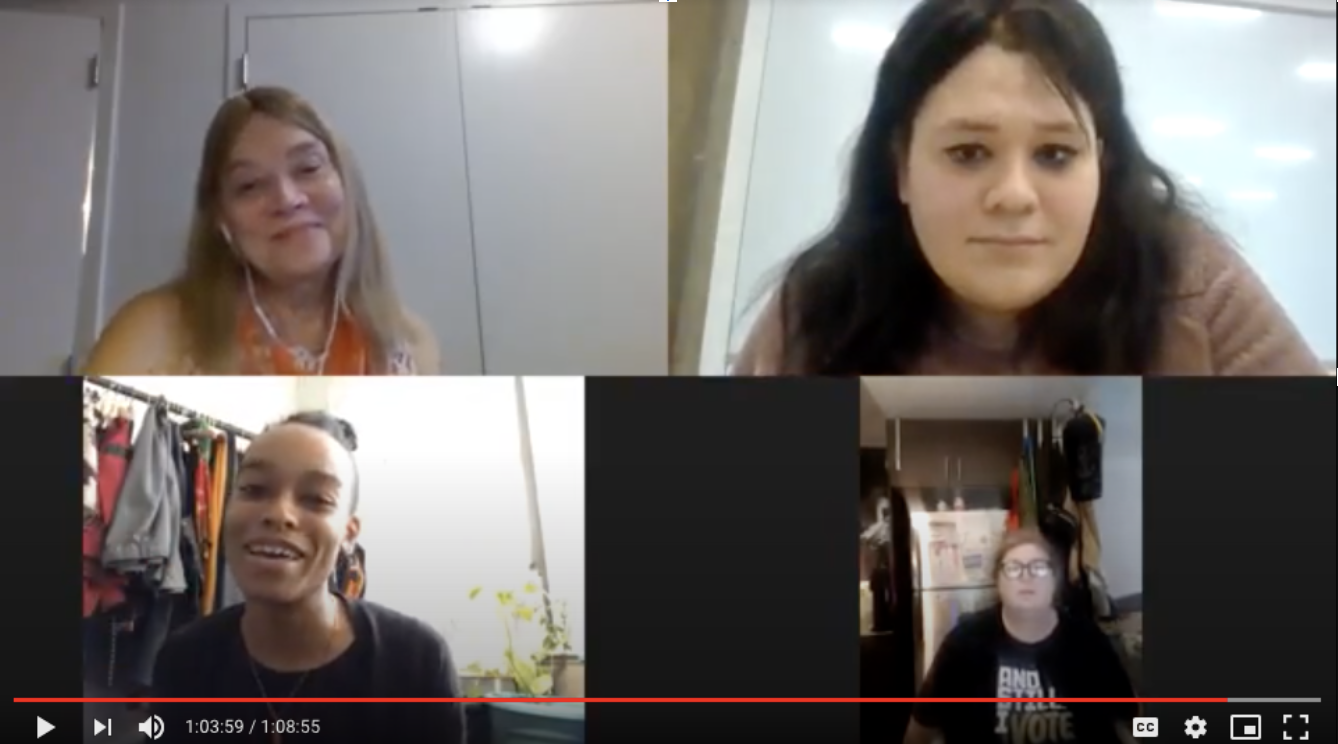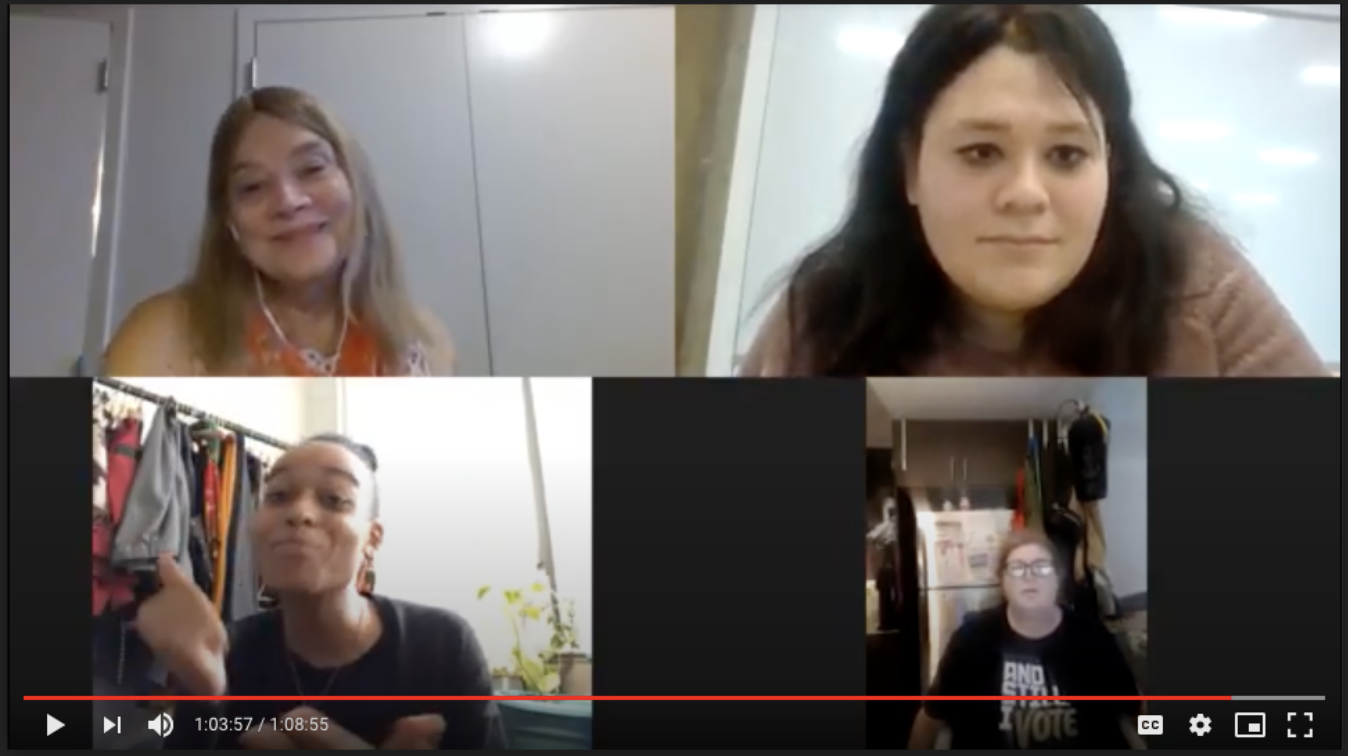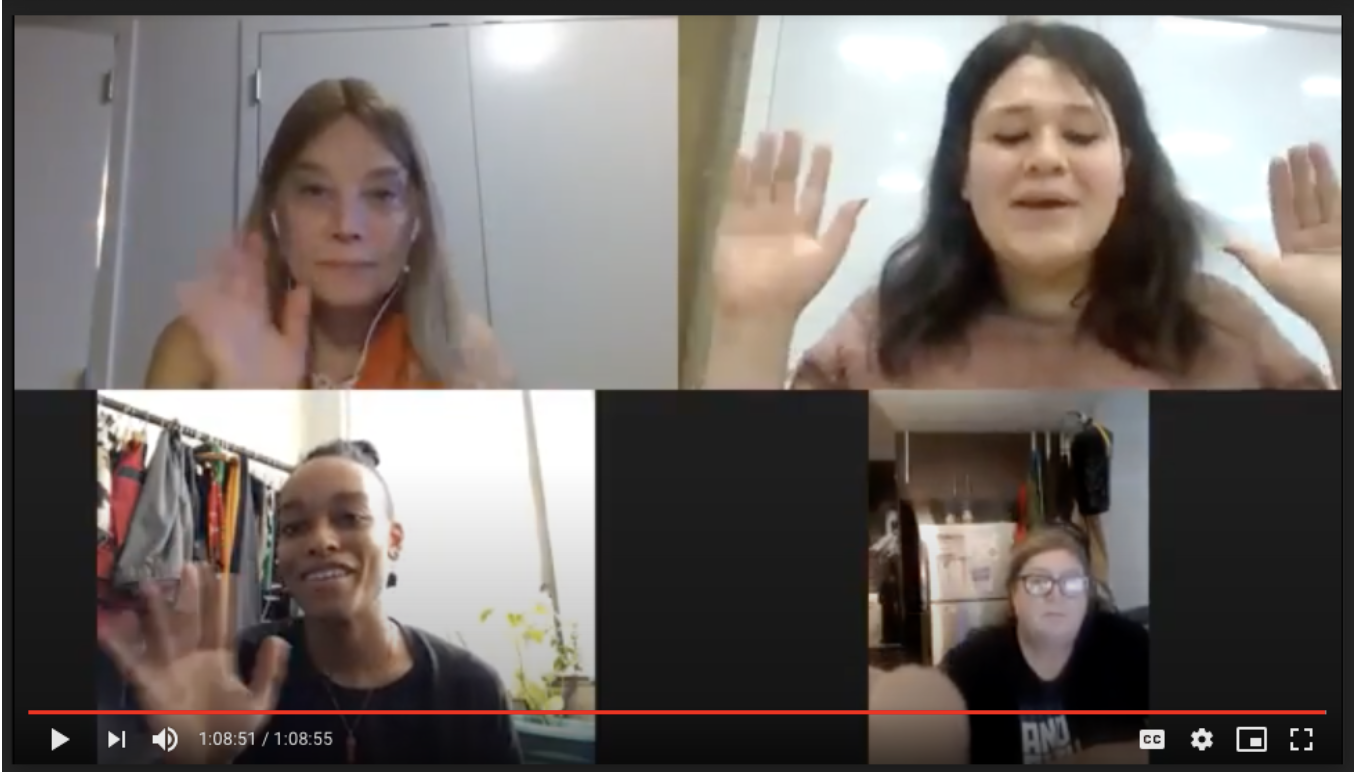trans family archives
ISSUE Thirteen //
1 December 2020
A NOTE FROM THE EDITOR, ELI BROWN
In organizing this issue, I reached out to friends, artists, social workers, and others I’ve met along the way who are doing intergenerational work in the community, are making work around trans-ness and time, or hold critiques around the systems in place meant to serve LGBTQ+ folks who are aging. I asked them to speak to their own experiences of trans-ness and time. How can we trace the networks running through our experience, creating the impediments to our mutual understanding or togetherness? If we are able to outline them, name them, face them, is there then a way out, around, or through? Please enjoy:
On TFA:
The idea for A Stitch in Time: Trans Family Archives, stemmed from my own long-felt desire to see and know trans people older than myself (I am 34). Before this project began, I had not known more than a handful of trans people significantly older than myself, and I knew from conversations with friends that my experience was not uncommon. In addition, as a queer and trans person who has experienced family rejection, I was and continue to be committed to creating more opportunities for different forms of family within my community.
Working alongside various organizations in Boston and New York, I have spent the past two years organizing a series of free dinners/conversation hubs which form the foundation of the project. These dinners offered a space for trans and non-binary people to discuss generational separation so as to strategize how to build meaningful intergenerational community. I wanted to create a space for trans and gender non-conforming folks to a) witness each other in physical space, b) confront generational biases, and c) build trust in a non-clinical setting. The project was committed to doing lateral, anti-agist, anti-racist work. It posed questions such as: “what are the barriers to our intergenerational contact and communication?”, “what is the language we use for ourselves and how has this shifted/not?”, and “how can we learn from each other?” While the free dinner/conversation series helped us to co-create intentionally multigenerational space and relationship in real time, I also sought to build a digital archive of more curated conversations: a free resource which explored cross-generational dynamics in our community.
This year, with a grant from Culture Push’s Utopian Practice, the project planned to host four dinners at art and community spaces across Brooklyn, Manhattan, and the Bronx. We were able to host a dinner in Brooklyn last November, however, the original trajectory of the project was cut short due to Covid-19. A Stitch In Time / Trans Family Archives relies on the ability for non-binary and trans-identified people to safely convene, and prioritizes the proximity of elders with young people. These aspects of the project made it especially difficult to re-frame given the current public health guidelines in place for our world, as older people are especially vulnerable to the virus and are being advised to avoid contact with others as much as possible.
And so, I have been reflecting on how to proceed with this project. On our successes and our failures. On what kind of organizer I have been. On what kind of organizer I could become. On whether I want to be an organizer at all. On whether or not I can sustainably manage the feelings that arise while doing this kind of work. On whether I am the right person for the job. On how many barriers there truly are in this community. On what the mechanism even is for confronting them and working through them. Young folks can get frustrated that elders aren’t listening, or that they aren’t using the right language. Older folks can get hurt because younger people are brazen and righteous about language and privilege. And yet, it is often the case that these elders lived their lives in a world with little to no visibility in order for the next generation to have that language. And so it depends on one’s perspective on various kinds of privilege, and picking one’s battles. For example, is it more important to have a teaching moment, to turn away, or to find common ground with this elder who has used a cringey word? Many of us who came up in the age of consent, in the wake of the world’s exposure to HIV/AIDS, have a tone, a way of speaking to one another, that is familiar. We practice non-violent communication and use “I” statements. We have had access to language, community, and representation that simply was unavailable previously. We have had the internet. It’s another privilege we enjoy - this ability to communicate, this understanding of gender as a construct, this visibility. And while I can sometimes relate to queer and trans people who are close in age to myself, I find myself drawn to those older than myself as there is often a kindness there, and a widening.
As I near middle-age, whatever that is, I feel I can relate to all of us. I both feel I don’t always have the right language (it changes, often, and one needs to have the time, the energy, and/or consistent access to community, to keep up) and feel the entitlement to, the need to dismiss a person who does not use a word that affirms me. It cuts especially close when confronted with one’s own community member doing the thing one is constantly bracing against.
But then, in the midst of all my doubts, there will be a moment during a workshop, when a group of us are huddled in a hotel conference room with the bad carpet and the metal chairs and we are laughing or crying or speaking or listening, and I feel like maybe this is it! Maybe that intention I had - to bridge time - is shared, and there is this well of emotion that floods from me, almost scares me but needs desperately to be released. And I think, and I know, maybe the others feel it too. And it almost doesn’t matter what kind of experience we’ve had. Because it’s all so precious - this shared time and space across time and space.





